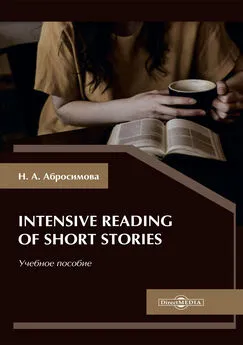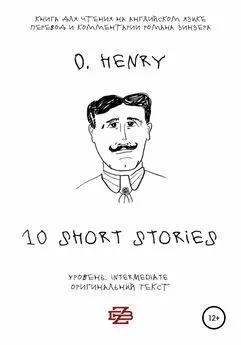Somerset Maugham - Sixty-Five Short Stories
- Название:Sixty-Five Short Stories
- Автор:
- Жанр:
- Издательство:неизвестно
- Год:неизвестен
- ISBN:нет данных
- Рейтинг:
- Избранное:Добавить в избранное
-
Отзывы:
-
Ваша оценка:
Somerset Maugham - Sixty-Five Short Stories краткое содержание
Sixty-Five Short Stories - читать онлайн бесплатно полную версию (весь текст целиком)
Интервал:
Закладка:
'Don't distress yourself, Miss King. Have a little patience and I'm sure you'll be able to say anything you want.'
He did not know if it was his fancy that he read in her eyes now the despairing thought that she had not the time to wait. Perhaps it was only that he ascribed to her the notions that came to himself. On the dressing-table were the governess's poor little toilet things, silver-backed embossed brushes and a silver mirror, in a corner stood a shabby black trunk, and on the top of the wardrobe a large hat-box in shiny leather. It all looked poor and mean in that trim hotel room, with its suite in highly varnished rosewood. The glare was intolerable.
'Wouldn't you be more comfortable if I turned out some of the lights?' asked Ashenden.
He put out all the lamps but the one by the bedside and then sat down again. He had a longing to smoke. Once more his eyes were held by those other eyes in which was all that remained alive of that old, old woman. He felt certain that she had something that she wanted urgently to say to him. But what was it? What was it? Perhaps she had asked him only because feeling death near, she had had a sudden yearning, she the exile of so many years, to die with someone of her own people, so long forgotten, by her side. That was what the doctor thought. But why should she have sent for him? There were other English people in the hotel. There was an old pair, a retired Indian Civilian and his wife, to whom it seemed more natural that she should turn. No one could be more of a stranger to her than Ashenden.
'Have you got something to say to me, Miss King?'
He tried to read an answer in her eyes. They continued to stare at him meaningly, but what the meaning was he had no notion.
'Don't be afraid I shall go. I will stay as long as you want me.'
Nothing, nothing. The black eyes, and as he looked at them they seemed to glow mysteriously as though there were fire behind them, the eyes continued to hold him with that insistent stare. Then Ashenden asked himself if she had sent for him because she knew that he was a British agent. Was it possible that at that last moment she had had some unexpected revulsion of feeling from everything that had signified to her for so many years? Perhaps at the moment of death a love for her country, a love that had been dead for half a century, awakened again in her-('I'm silly to fancy these idiotic things,' thought Ashenden, 'it's cheap and tawdry fiction')-and she had been seized with a desire to do something for what was after all her own. No one was quite himself just then and patriotism (in peace-time an attitude best left to politicians, publicists, and fools, but in the dark days of war an emotion that can wring the heart-strings), patriotism made one do odd things. It was curious that she had been unwilling to see the prince and his daughters. Did she on a sudden hate them? Did she feel herself a traitor on their account and now at the last hour wish to make amends? ('It's all very improbable, she's just a silly old maid who ought to have died years ago.') But you couldn't ignore the improbable. Ashenden, his common sense protesting, became strangely convinced that she had some secret that she wished to impart to him. She had sent for him knowing who he was because he could make use of it. She was dying and feared nothing. But was it really important? Ashenden leaned forward trying more eagerly to read what her eyes had to say. Perhaps it was only some trivial thing that was important only in her addled old brain. Ashenden was sick of the people who saw spies in every inoffensive passer-by and plots in the most innocent combination of circumstances. It was a hundred to one that if Miss King recovered her speech she would tell him something that could be of no use to anybody.
But how much must that old woman know! With her sharp eyes and sharp ears she must have had the chance to discover matters that were closely hidden from persons that seemed less insignificant. Ashenden thought again how he had the impression that something of real consequence was being prepared round about him. It was curious that Holzminden should have come to the hotel that day; and why had Prince Ali and the pasha, those wild gamblers, wasted an evening in playing contract-bridge with him? It might be that some new plan was in question, it might be that the very greatest affairs were afoot, and perhaps what the old woman had to say might make all the difference in the world. It might mean defeat or victory. It might mean anything. And there she lay powerless to speak. For a long time Ashenden stared at her in silence.
'Has it got anything to do with the war, Miss King?' he said on a sudden, loudly.
Something passed through her eyes and a tremor shot across her little old face. It was a distinct movement. Something strange and horrible was happening and Ashenden held his breath. The tiny frail body was suddenly convulsed and that old woman, as though by a final desperate effort of will, raised herself up in the bed. Ashenden sprang forward to support her.
'England,' she said, just that one word, in a harsh cracked voice, and fell back in his arms.
When he laid her down on the pillow, he saw that she was dead.
The Hairless Mexican
'Do you like macaroni?' said R.
'What do you mean by macaroni?' answered Ashenden. 'It is like asking me if I like poetry. I like Keats and Wordsworth and Verlaine and Goethe. When you say macaroni, do you mean spaghetti, tagliatelli, vermicelli, fettuccini, tufali, farfalli, or just macaroni?'
'Macaroni,' replied R., a man of few words.
'I like all simple things, boiled eggs, oysters and caviare, truite au bleu, grilled salmon, roast lamb (the saddle by preference), cold grouse, treacle tart, and rice pudding. But of all simple things the only one I can eat day in and day out, not only without disgust but with the eagerness of an appetite unimpaired by excess, is macaroni.'
'I am glad of that because I want you to go down to Italy.'
Ashenden had come from Geneva to meet R. at Lyons and having got there before him had spent the afternoon wandering about the dull, busy and prosaic streets of that thriving city. They were sitting now in a restaurant on the place to which Ashenden had taken R. on his arrival because it was reputed to give you the best food in that part of France. But since in so crowded a resort (for the Lyonese like a good dinner) you never knew what inquisitive ears were pricked up to catch any useful piece of information that might fall from your lips, they had contented themselves with talking of indifferent things. They had reached the end of an admirable repast.
'Have another glass of brandy?' said R.
'No, thank you,' answered Ashenden, who was of an abstemious turn.
'One should do what one can to mitigate the rigours of war,' remarked R. as he took the bottle and poured out a glass for himself and another for Ashenden.
Ashenden, thinking it would be affectation to protest, let the gesture pass, but felt bound to remonstrate with his chief on the unseemly manner in which he held the bottle.
'In my youth I was always taught that you should take a woman by the waist and a bottle by the neck,' he murmured.
'I am glad you told me. I shall continue to hold a bottle by the waist and give women a wide berth.'
Ashenden did not know what to reply to this and so remained silent. He sipped his brandy and R. called for his bill. It was true that he was an important person, with power to make or mar quite a large number of his fellows, and his opinions were listened to by those who held in their hands the fate of empires; but he could never face the business of tipping a waiter without an embarrassment that was obvious in his demeanour. He was tortured by the fear of making a fool of himself by giving too much or of exciting the waiter's icy scorn by giving too little. When the bill came he passed some hundred-franc notes over to Ashenden and said:
'Pay him, will you? I can never understand French figures.'
The groom brought them their hats and coats.
'Would you like to go back to the hotel?' asked Ashenden.
'We might as well.'
It was early in the year, but the weather had suddenly turned warm, and they walked with their coats over their arms. Ashenden knowing that R. liked a sitting-room had engaged one for him, and to this, when they reached the hotel, they went. The hotel was old-fashioned and the sitting-room was vast. It was furnished with a heavy mahogany suite upholstered in green velvet and the chairs were set primly round a large table. On the walls, covered with a dingy paper, were large steel engravings of the battles of Napoleon, and from the ceiling hung an enormous chandelier once used for gas, but now fitted with electric bulbs. It flooded the cheerless room with a cold, hard light.
'This is very nice,' said R., as they went in.
'Not exactly cosy,' suggested Ashenden.
'No, but it looks as though it were the best room in the place. It all looks very good to me.'
He drew one of the green velvet chairs away from the table and, sitting down, lit a cigar. He loosened his belt and unbuttoned his tunic.
'I always thought I liked a cheroot better than anything,' he said, 'but since the war I've taken quite a fancy to Havanas. Oh well, I suppose it can't last for ever.' The corners of his mouth flickered with the beginning of a smile. 'It's an ill wind that blows nobody any good.'
Ashenden took two chairs, one to sit on and one for his feet, and when R. saw him he said: 'That's not a bad idea,' and swinging another chair out from the table with a sigh of relief put his boots on it.
'What room is that next door?' he asked.
'That's your bedroom.'
'And on the other side?'
'A banqueting hall.'
R. got up and strolled slowly about the room and when he passed the windows, as though in idle curiosity, peeped through the heavy rep curtains that covered them, and then returning to his chair once more comfortably put his feet up.
'It's just as well not to take any more risk than one need,' he said.
He looked at Ashenden reflectively. There was a slight smile on his thin lips, but the pale eyes, too closely set together, remained cold and steely. R.'s stare would have been embarrassing if Ashenden had not been used to it. He knew that R. was considering how he would broach the subject that he had in mind. The silence must have lasted for two or three minutes.
'I'm expecting a fellow to come and see me tonight,' he said at last. 'His train gets in about ten.' He gave his wrist-watch a glance. 'He's known as the Hairless Mexican.'
'Why?'
'Because he's hairless and because he's a Mexican.'
'The explanation seems perfectly satisfactory,' said Ashenden.
'He'll tell you all about himself. He talks nineteen to the dozen. He was on his uppers when I came across him. It appears that he was mixed up in some revolution in Mexico and had to get out with nothing but the clothes he stood up in. They were rather the worse for wear when I found him. If you want to please him you call him General. He claims to have been a general in Huerta's army, at least I think it was Huerta; anyhow he says that if things had gone right he would be Minister of War now and no end of a big bug. I've found him very useful. Not a bad chap. The only thing I really have against him is that he will use scent.'
'And where do I come in?' asked Ashenden.
'He's going down to Italy. I've got rather a ticklish job for him to do and I want you to stand by. I'm not keen on trusting him with a lot of money. He's a gambler and he's a bit too fond of the girls. I suppose you came from Geneva on your Ashenden passport?'
'Yes.'
Читать дальшеИнтервал:
Закладка:










